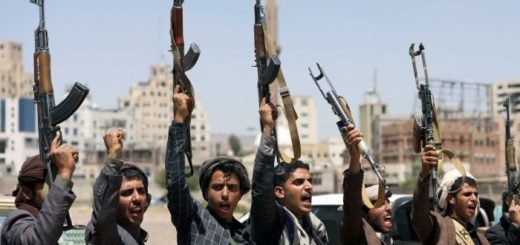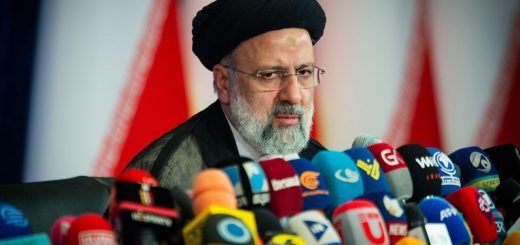Turkey’s snap elections and the future of Turkish democracy
If the elections are characterized by inconsistencies and injustices similar to those that marred the ones in 2015 and the April 2017 referendum, no one in Turkey truly stands to gain. Erdoğan and the AKP enter the elections with the promise of phasing out the country’s battered parliamentary system and replacing it with a presidential one –Kemal Kirişci* & Kutay Onayli**
In calling for snap presidential and parliamentary elections on June 24 instead of late 2019, Turkish President Recep Tayyip Erdoğan is aiming to ride a favourable wave of nationalism and cash in on a popular mandate before dark clouds over the economy turn into a storm. In the absence of a free media, coupled with a weak and fragmented opposition caught unprepared, it’s likely that Erdoğan and his Justice and Development Party (AKP)—along with their electoral ally, the National Action Party (MHP)—will handsomely win the elections. However, if the government fails to ensure that elections are free and fair, this could aggravate Turkey’s deep polarization and also risk undermining the legitimacy of an electoral victory. This, in turn, could weaken the AKP’s performance at the mayoral elections in March 2019.
Beginning with its first multi-party competitive election in 1950, Turkey long had a history of holding reasonably free and fair elections. Its election laws are far from perfect: The 10 percent threshold for political parties to enter parliament, introduced after the 1980 coup to support stable governments, is draconian and contested, for instance. It has called into question how democratic and representative the elections truly are when they exclude political parties below that threshold from entering parliament.
Broadly speaking, though, the laws allow for the potential conduct of free and fair votes. As the Organization of Security and Cooperation in Europe (OSCE)—which is responsible for monitoring European elections—noted in 2015, Turkey’s “legal framework is generally conducive to the conduct of democratic elections, if implemented fully and effectively” (emphasis added). In recent years, there have been growing concerns about the implementation part.
In the run-up to the June 2015 general elections, opposition parties accused Erdoğan of breaching constitutional stipulations against partisan activity by a sitting president (he was campaigning intensely for the AKP). Opposition parties also complained that they enjoyed only limited access to state media and resources against a background of growing media repression. Problems became further aggravated when the AKP failed to garner enough seats in parliament to form a government on its own, and called for repeat elections. There was an escalation of violence ahead of the vote once a ceasefire between the Turkish government and the PKK broke down. An increase in the number of attacks against party members and activists, particularly from the People’s Democratic Party (HDP), and a general failure to ensure the safety of the HDP’s electorate raised concerns. The picture was further aggravated when the government, for security reasons, relocated polling stations in areas affected by violence, complicating the voting process in primarily Kurdish-populated areas of Turkey.
Of greater concern for the upcoming snap elections is what happened during the run-up to the April 2017 referendum on constitutional amendments that Erdoğan sought. The emergency rule imposed after the coup attempt in July 2016 further restricted media freedoms and openness around criticizing the government suffocating the voice of a “no” vote. In fact, the government used state resources in support of a “yes” vote so blatantly that it prompted the OSCE to argue that “the line between State and party” had become “blurred.” The public did not have a chance to develop an informed understanding of the proposed amendments to the constitution.
Ironically, even the prime minister—a staunch Erdoğan loyalist—remarked that the country never had a chance to discuss properly the proposed amendments. Turkey’s Supreme Electoral Council (YSK) also dramatically reinterpreted Turkey’s election bylaws, ruling that “voting ballots and envelopes not bearing the authenticating stamps of the voting stations, unless proven to have been brought in from the outside, will be considered valid.” Not surprisingly, there were accusations of ballot-box stuffing. With very tight referendum results—51 percent in favor of the proposed changes versus 49 percent against—this particular decision and unusual practice cast considerable doubt on the actual popularity of the constitutional amendments. It is not surprising that Turkey’s opposition parties cried foul after the April referendum vote, and Oy ve Ötesi—“Vote and Beyond,” an NGO that has trained and organized tens of thousands of election observers in every election since 2014 (registering them under a wide range of political parties),—said that YSK’s decision “irrevocably harmed the transparency and lawfulness of the referendum.”
There is another challenge to ensuring the integrity of the upcoming snap elections. Under Turkey’s election laws, non-partisan civilian observers are not allowed to monitor the vote. However, Oy ve Ötesi has worked with a range of political parties, which has enabled its observers to monitor all voting and counting procedures at their respective ballot boxes. They submit copies of individual tallies to a database at the end of the day and, with the help of a special software, double-check the accuracy of the official results. In the November 2015 elections, for example, Oy ve Ötesi was able to monitor over 50 percent of the 54 million votes cast in Turkey. The government’s effort to write YSK’s decision into a new election law—together with growing talk of introducing regulations to make it much more difficult for civilians to register as election monitors as well as limit the number of political party observers—has further increased fears of election safety.
Another critical question is: Will Turkey’s newest opposition party be able to participate? The charismatic, feisty, blunt-talking Meral Akşener created the center-right Iyi Party at the end of 2017, following a drawn-out unsuccessful battle to unseat MHP leader Devlet Bahçeli, now a key Erdoğan ally. Iyi Party consistently polls above the 10 percent threshold, and Akşener is seen as an energetic and unique challenger to Erdoğan from Turkey’s political right, which she is seeking both to muster and to moderate. She declared her candidacy minutes after Erdoğan announced the snap vote; however there is still the risk that Iyi Party may be excluded from the parliamentary election on a technicality. This could cause a disastrous legitimacy crisis for Erdoğan, and comes in the context of numerous HDP politicians getting jailed, weakening this party’s ability to run effectively in the parliamentary elections.
The current state of freedom of the press in Turkey is also a key concern. OSCE reports since 2015 have pointed out severe inequalities in press coverage of political campaigns. The problem, however, is far more fundamental than issues of coverage: Many questions whether Turkey today sanctions open debate and a free media at all. Freedom House downgraded the country from “partially free” to “not free” in January and accused the AKP government of a “growing contempt for political rights and civil liberties.” Freedom House also drew attention to “a massive purge of media outlets” since the July 2016 coup attempt in the country. Shortly before snap elections were announced, Turkey’s largest remaining independent media company was sold to a businessman with close ties to the government.
The announcement of the snap elections also coincided with the seventh extension of emergency rule, which authorizes, among other things, the government to limit the right to assembly. A recent decision by the governorship of Ankara suspending this right “until such a time that Turkey’s military operation in Syria comes to an end” does not bode well for a lively and democratic electoral campaign. An emergency rule could deter the Turkish electorate from protesting. Yet, the recent protests in Armenia forced the newly elected prime minister (who enjoyed considerable powers and access to repressive methods) to resign. The situation in Turkey may not be completely comparable, but the 2013 Gezi Park protests took everyone by surprise. Hence, in the event of real or perceived electoral fraud, protests could follow that could easily turn violent, throwing the legitimacy of the election results into question and the country into instability.
Thus, perhaps even more crucial than the outcome of the vote itself on June 24 is whether the electoral process will be demonstrably free and fair. If the elections are characterized by inconsistencies and injustices similar to those that marred the ones in 2015 and the April 2017 referendum, no one in Turkey truly stands to gain. Erdoğan and the AKP enter the elections with the promise of phasing out the country’s battered parliamentary system and replacing it with a presidential one. If the government doesn’t want to be accused of also phasing out the rule of law and the very concept of democratic elections in Turkey, it should ensure that all contestants enjoy the freedoms of participation, speech, and media, as well as a rigorous monitoring of the elections. A failure to ensure these standards risks not only bringing further polarization and contestation as Turkey prepares for local elections in 2019, but could also generate severe doubts about the legitimacy of the new presidential system itself. The legitimacy issue would become even acuter if Erdoğan were to win the presidency but the AKP and MHP failed to garner a majority, leaving him presumably to seek cohabitation. Given the present levels of political polarization, however, a split between the parliament and the presidency could cause immense legislative stagnation and political instability in Turkey.
Hence, it should be in the government’s interest to ensure free and fair elections, without which governing Turkey democratically may become even more challenging. A vote marred with irregularities or other problems would hurt Turkey’s political stability and economic prosperity, and would also undermine the country’s prospects of playing a constructive role in an already very difficult neighbourhood.
This report on Turkish Election is prepared and first published by the Brookings Institution.
*Kemal Kirişci is TÜSİAD Senior Fellow – Foreign Policy, Center on the United States and Europe. Also, he’s Director – The Turkey Project at Brookings.
**Kutay Onayli is a PhD candidate at Princeton University.
The views and opinions expressed in this article are those of the authors and do not necessarily reflect the views of The Kootneeti Team.


















